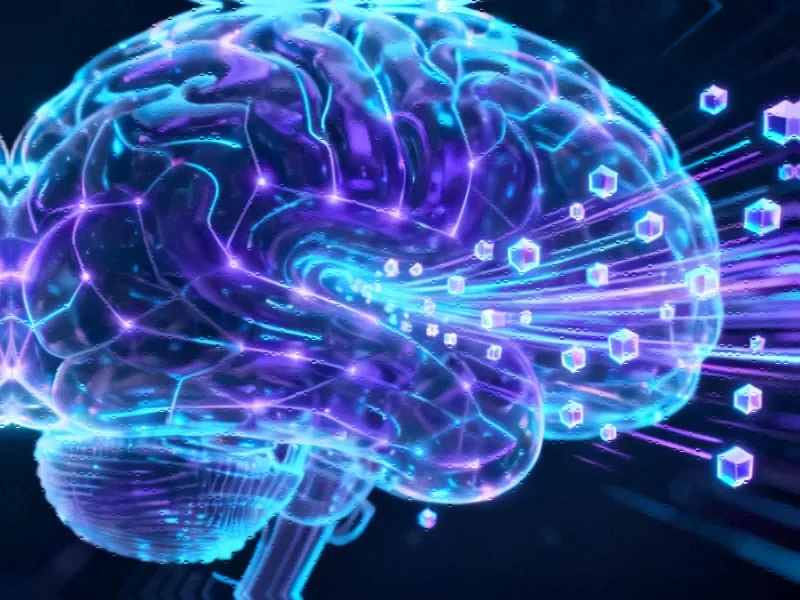Europe’s AI Landscape Transforms Through Strategic Acquisitions
The European artificial intelligence sector is undergoing a significant transformation as merger and acquisition activity reaches unprecedented levels. According to recent data analysis, 2025 has already witnessed 98 M&A deals involving AI-native startups, surpassing the total of 85 acquisitions recorded throughout the entire previous year. This surge represents a fundamental shift in how companies are approaching AI integration and talent acquisition.
The consolidation trend appears to be gaining momentum, with July and August recording 18 and 15 exits respectively—the highest monthly totals since comprehensive tracking began. This acceleration reflects both the maturation of Europe’s AI ecosystem and growing corporate urgency to secure competitive advantages in artificial intelligence capabilities.
Major Deals Reshape the Competitive Landscape
Several landmark transactions have captured industry attention, particularly the acquisition of Swedish AI specialist Sana by California-based Workday. The $1.1 billion deal represents one of the largest European AI exits to date and signals growing international interest in the region’s AI talent. Similarly significant was US customer service leader NiCE’s nearly $1 billion purchase of Düsseldorf-based Cognigy, which specializes in conversational and agentic AI solutions for customer service enhancement.
Despite these headline-grabbing transactions, the majority of consolidation is occurring at earlier stages. Legal experts note that 83 of this year’s 98 deals involved early-stage companies, compared to just 15 growth and late-stage acquisitions. This pattern suggests that established players are increasingly targeting promising technologies and specialized talent before startups reach maturity.
Diverse Acquirer Profiles Emerge
The acquisition landscape reveals varied strategic approaches across different types of organizations. Traditional corporations continue to dominate as acquirers, with cybersecurity leader Check Point’s purchase of Swiss startup Lakera and software giant Salesforce’s acquisition of UK-based Convergence demonstrating how established players are strengthening their AI capabilities through targeted M&A.
Perhaps more notably, European AI scaleups themselves are increasingly positioning as acquirers. Paris-based Mistral has incorporated M&A into its core growth strategy, while agentic AI specialist H Company’s quiet acquisition of French startup Mithril Security illustrates how European AI sector consolidation is creating a new class of scaled startups capable of strategic acquisitions.
Strategic Drivers Behind the M&A Surge
Multiple factors are fueling this accelerated consolidation. The unprecedented funding that flowed into AI startups in recent years has created a pipeline of acquisition targets, while corporations face increasing pressure to integrate AI capabilities across their operations. The talent component cannot be overstated—with AI expertise remaining scarce, acqui-hiring has become a primary motivation for many transactions.
Industry observers note that this consolidation phase reflects broader industry developments in technology maturation. As AI technologies evolve from experimental to essential infrastructure, the competitive dynamics are shifting toward integration and scalability rather than pure innovation.
Regional Implications and Future Outlook
The concentration of M&A activity in Europe’s key innovation hubs—particularly Stockholm, Paris, London, and Berlin—highlights the region’s growing importance in the global AI landscape. While US acquirers remain active participants, the emergence of European scaleups as acquirers suggests a maturing ecosystem capable of producing self-sustaining technology leaders.
Looking forward, experts anticipate continued consolidation as companies position themselves for the next phase of AI adoption. The current market trends suggest that integration challenges and scalability requirements will drive further M&A activity, particularly as AI implementation moves from pilot projects to core business operations.
The infrastructure supporting these AI innovations continues to evolve, with related innovations in adjacent technology sectors creating new opportunities for synergistic acquisitions. Meanwhile, broader recent technology advancements across multiple industries are creating additional pressure for AI integration through strategic acquisitions.
Strategic Considerations for Market Participants
For startups navigating this environment, the accelerated M&A activity presents both opportunities and challenges. The increased exit options must be balanced against the potential for premature acquisition before reaching full valuation potential. For acquirers, the competitive landscape requires careful evaluation of both technological fit and cultural integration—particularly when the primary acquisition target is specialized talent.
As the European AI sector continues its consolidation phase, market participants should expect:
- Increased competition for quality acquisition targets
- Growing valuation premiums for startups with proven AI talent
- More cross-border transactions as geographic barriers diminish
- Strategic partnerships evolving into full acquisitions
The coming months will likely reveal whether this consolidation represents a temporary market correction or a fundamental restructuring of how AI innovation is commercialized and scaled across the European technology landscape.
This article aggregates information from publicly available sources. All trademarks and copyrights belong to their respective owners.
Note: Featured image is for illustrative purposes only and does not represent any specific product, service, or entity mentioned in this article.



